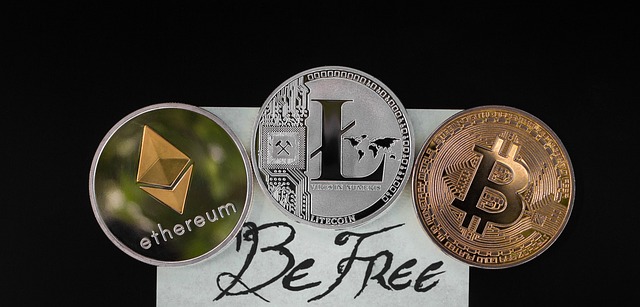Decentralized Finance (DeFi), powered by blockchain technology, has transformed financial services by removing traditional intermediaries, offering peer-to-peer lending, borrowing, trading, and investing with no barriers. However, the decentralized nature of DeFi presents significant regulatory challenges for governments worldwide due to varying global regulations, making oversight difficult. Concerns about consumer protection, money laundering, and tax evasion require clearer frameworks. Balancing innovation and compliance is crucial for DeFi's long-term sustainability as regulators strive to adapt and create resilient, inclusive financial systems amidst rapid evolution.
“Decentralized finance (DeFi) has emerged as a revolutionary force, transforming traditional financial systems with its promise of accessibility and transparency. However, as DeFi gains traction, regulatory challenges surface, creating a complex web that requires careful navigation. This article delves into the heart of these issues, exploring the rise of DeFi, its current regulatory hurdles, and potential solutions. By understanding these complexities, we can shape a future where decentralized finance flourishes within a robust legal framework.”
- Understanding Decentralized Finance (DeFi) and Its Rise
- Regulatory Challenges Facing DeFi: A Complex Web
- Navigating the Future: Potential Solutions and Innovations
Understanding Decentralized Finance (DeFi) and Its Rise

Decentralized Finance (DeFi) has emerged as a revolutionary concept in the financial world, aiming to democratize access to various financial services by eliminating intermediaries like banks. This innovative system operates on blockchain technology, creating a peer-to-peer network where users can participate in lending, borrowing, trading, and investing without traditional barriers. DeFi’s growth has been phenomenal, attracting significant investments and a dedicated user base.
However, as DeFi gains traction, it faces regulatory challenges that threaten its development. The decentralized nature of DeFi makes it difficult for traditional financial regulators to oversee effectively. Concerns around consumer protection, money laundering, and tax evasion have prompted governments worldwide to seek clearer frameworks for governing this new asset class. Striking a balance between fostering innovation and ensuring compliance is crucial for the long-term sustainability of DeFi.
Regulatory Challenges Facing DeFi: A Complex Web

The decentralized nature of decentralized finance (DeFi) presents a unique set of regulatory challenges. As DeFi platforms operate outside traditional financial systems, they often find themselves navigating a complex web of legal and oversight frameworks. This includes varying and evolving regulations across different jurisdictions, which can be hard to keep up with for both regulators and industry players. The lack of centralized authority in DeFi makes it difficult to implement consistent rules and standards globally.
Moreover, the anonymous and transparent aspects of blockchain technology create a challenge for identifying and verifying users, a crucial aspect for preventing illicit activities such as money laundering and fraud. Regulatory bodies are grappling with how to balance innovation and consumer protection when dealing with DeFi, which is still in its nascent stages and rapidly evolving. This complex regulatory landscape requires both clarity from legislators and adaptability from the DeFi community to ensure a sustainable and secure future for these financial innovations.
Navigating the Future: Potential Solutions and Innovations

The future of default management presents a complex landscape, requiring innovative solutions to address the evolving financial needs of individuals and institutions. As we navigate uncharted territories, technologies like Decentralized Finance (DeFi) emerge as potential game-changers. DeFi platforms offer decentralized lending and borrowing mechanisms, aiming to democratize access to credit and reduce reliance on traditional intermediaries. However, these emerging systems face significant regulatory challenges. Striking a balance between fostering innovation and protecting consumers is paramount.
Regulatory bodies worldwide are actively exploring ways to oversee DeFi while encouraging its growth. This includes developing clear frameworks for smart contract auditing, consumer protection measures, and collaboration between global authorities. By embracing technology while implementing robust safeguards, the default management industry can evolve, ensuring a more resilient and inclusive financial system for all.
As we’ve explored, decentralized finance (DeFi) has emerged as a revolutionary force in the financial landscape, promising greater accessibility and transparency. However, navigating the complex web of regulatory challenges is essential for its continued growth and adoption. By fostering collaboration between regulators, innovators, and the DeFi community, we can chart a course that protects users while enabling this innovative technology to reach its full potential, shaping a future where finance is truly accessible to all.
